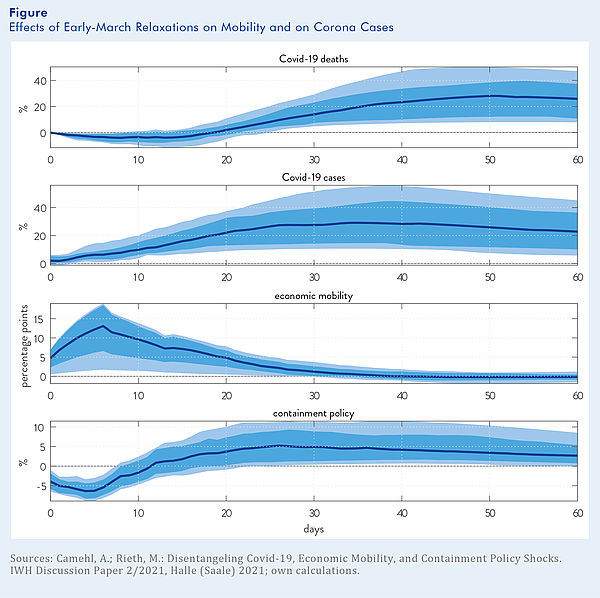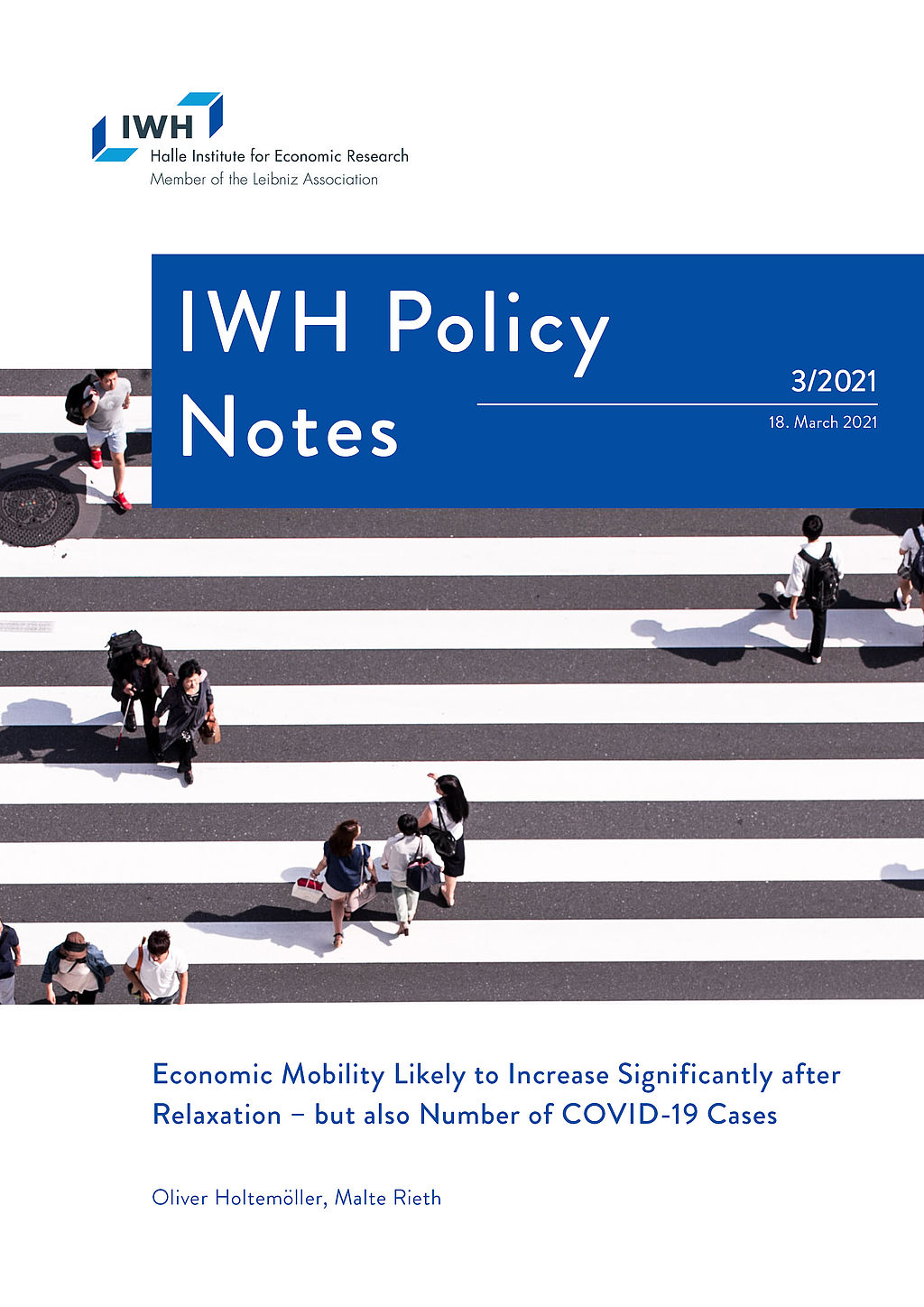Economic mobility likely to increase significantly after relaxation – but also number of COVID-19 cases
In Germany, measures to contain the coronavirus were relaxed in some areas in early March; for example, restrictions on private and public gatherings were eased, and retail stores are increasingly able to receive customers again. The aim is to allow for a resurgence in economic mobility and personal contact between people. However, the frequency of contact is a major factor influencing the rate of spread of coronavirus, especially since the relaxations have not yet been accompanied by a systematic testing strategy; and vaccination progress has also so far fallen short of expectations.
Estimates based on a model of the relationship between containment measures (Oxford COVID-19 Government Response Tracker, Stringency Index), economic mobility (Google Mobility Data), new corona infections, and deaths (World Health Organization) with data from 44 countries suggest that recent relaxations increase economic mobility by more than ten percentage points and the number of new infections and deaths in Germany by 25%. Oliver Holtemöller, head of the Department Macroeconomics and vice president at the IWH, and co-author Malte Rieth, Martin Luther University Halle-Wittenberg and German Institute for Economic Research (DIW Berlin), simulate a counterfactual scenario without the early March relaxations. They contrast this with a scenario in which the Stringency Index falls by 5%, which is similar to its fall in early March. The figure shows the difference between these two scenarios.

"Since both a continued lockdown and relaxations have significant negative consequences, it is even more important to enable further relaxations through better testing and quarantine strategies and by increasing the pace of vaccination without jeopardizing people’s health," says Holtemöller.
Publication:
Oliver Holtemöller, Malte Rieth: Economic Mobility Likely to Increase Significantly after Relaxation – but also Number of COVID-19 Cases. IWH Policy Notes 3/2021. Halle (Saale) 2021.
Whom to contact
For Researchers

Vice President Department Head
If you have any further questions please contact me.
+49 345 7753-800 Request per E-MailFor Journalists

Head of Public Relations
If you have any further questions please contact me.
+49 345 7753-720 Request per E-MailIWH list of experts
The IWH list of experts provides an overview of IWH research topics and the researchers and scientists in these areas. The relevant experts for the topics listed there can be reached for questions as usual through the IWH Press Office.
Related Publications

Economic Mobility Likely to Increase Significantly after Relaxation – but also Number of COVID-19 Cases
in: IWH Policy Notes, 3, 2021
Abstract
In Germany, measures to contain the coronavirus were relaxed in some areas at the beginning of March; in many places, for example, the restrictions on private and public gatherings were eased, and retail stores are increasingly able to receive customers again. The aim of these decisions is to allow for more economic mobility and personal contact between people. However, the frequency of contact is a major factor influencing the rate at which the coronavirus spreads, especially since the relaxations have so far not been accompanied by a systematic testing strategy; and vaccination progress has so far also fallen short of expectations. Estimates based on a model of the relationship between containment measures (Oxford COVID-19 Government Response Tracker, Stringency Index), economic mobility (Google Mobility Data), new corona infections, and deaths with data from 44 countries suggest that the recent relaxations increase economic mobility by ten percentage points and the number of new infections and deaths in Germany by 25%. Because both continued lockdown and relaxations have significant negative consequences, it is even more important to enable further relaxations through better testing and quarantine strategies and by increasing the pace of vaccination without putting people's health at risk.



